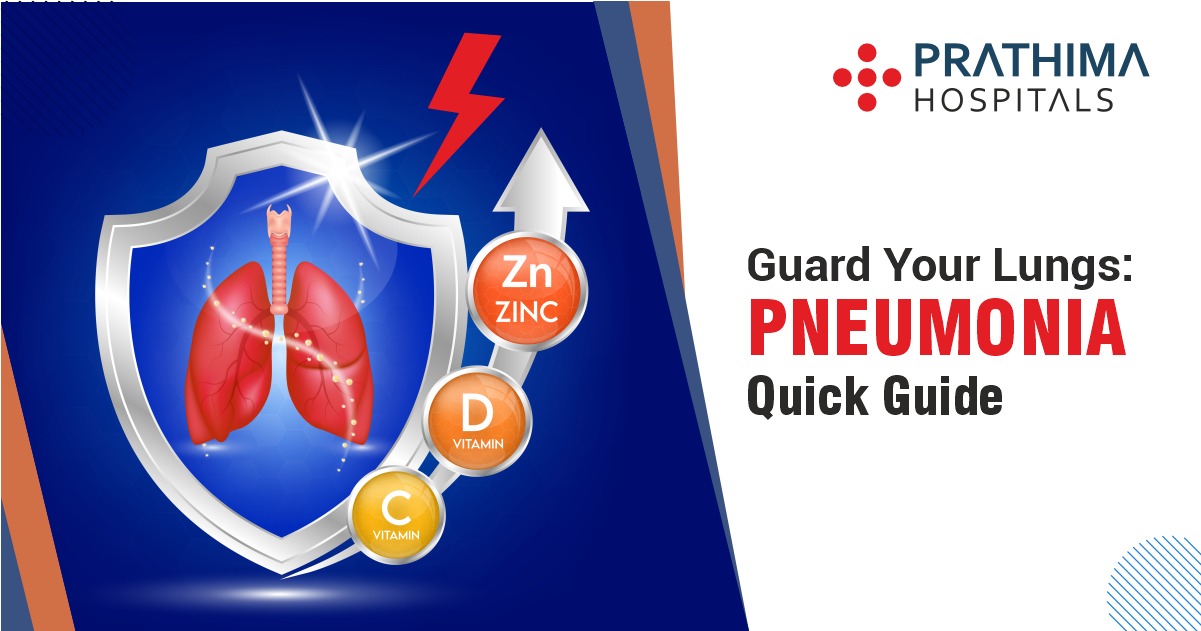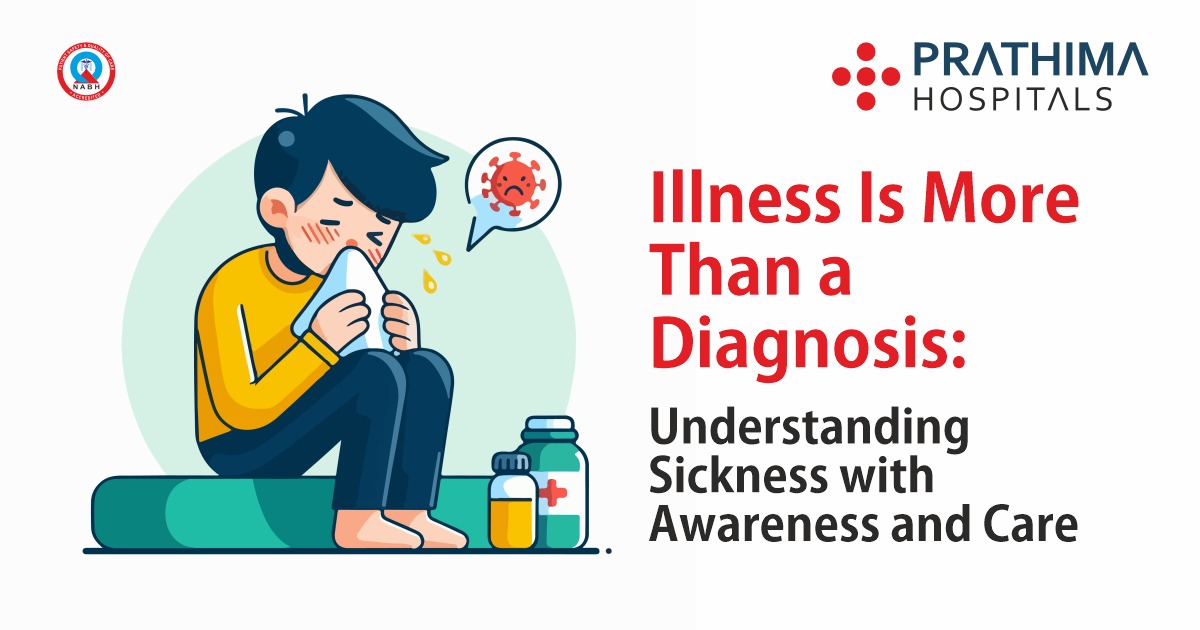Pneumonia: An In-Depth Analysis of a Common yet Dangerous Respiratory Illness!

World Pneumonia Day 2023
Introduction:
Pneumonia is a common and potentially life-threatening respiratory infection, as said by the Pulmonologist in Hyderabad it affects the lungs, causing inflammation and the accumulation of fluid and pus in the air sacs, known as alveoli. While pneumonia can affect people of all ages, it is most often seen in children under the age of five and adults over the age of 65. This essay aims to provide a comprehensive overview of pneumonia, including its causes, symptoms, diagnosis, treatment, prevention, and the impact it has on public health.
Causes and Risk Factors – Pulmonologist in Kachiguda:
Pneumonia can be caused by a variety of microorganisms, with bacteria, viruses, and fungi being the most common culprits. The leading cause of bacterial pneumonia is Streptococcus pneumoniae, followed by other bacteria such as Haemophilus influenzae, Staphylococcus aureus, and Klebsiella pneumoniae. Viral pneumonia is frequently caused by influenza viruses, respiratory syncytial virus (RSV), and adenoviruses. Fungal pneumonia, on the other hand, is more common in people with weakened immune systems, such as those with HIV/AIDS, or those who have inhaled fungal spores. Common fungi that can cause pneumonia include Pneumocystis jirovecii and Aspergillus species.
In addition to microbial agents, several risk factors can increase the likelihood of developing pneumonia. These include:
- Age: Infants and young children, as well as individuals over the age of 65, are more vulnerable to pneumonia due to weaker immune systems.
- Weakened Immune System: Conditions like HIV/AIDS, cancer, organ transplantation, or certain medications that suppress the immune system can make individuals more susceptible to pneumonia.
- Chronic Medical Conditions: According to the Pulmonologist in Kachiguda, people with chronic conditions like asthma, chronic obstructive pulmonary disease (COPD), diabetes, heart disease, or kidney disease are at an increased risk.
- Smoking: Smoking damages the respiratory system, making it easier for infections to take hold.
- Alcohol Abuse: Excessive alcohol consumption can weaken the immune system, making it harder for the body to fight off infections.
- Exposure to Environmental Factors: Prolonged exposure to pollutants, chemicals, or aspiration of stomach contents can increase the risk of developing pneumonia.
- Recent Respiratory Infections: People who have had a recent cold or flu may be more susceptible to secondary bacterial pneumonia.
- Close Contact with Infected Individuals: Living or working in close quarters with someone who has pneumonia can increase the risk of transmission.
- Poor Hygiene: Inadequate handwashing and hygiene practices can contribute to the spread of infections.
Symptoms and Clinical Presentation – Pulmonologist in Kachiguda:
The signs of pneumonia can vary relying on the reason and the individual’s age & general health. However, common signs and symptoms include:
- Cough: Pneumonia often presents with a persistent cough that may produce mucus or even blood.
- Fever: A high fever, typically over 100.4°F (38°C), is a common symptom.
- Shortness of Breath: Individuals may experience difficulty breathing, especially during physical activity.
- Chest Pain: Chest pain that worsens with breathing or coughing is a common symptom.
- Fatigue: General weakness and fatigue are often reported by individuals with pneumonia.
- Confusion (in older adults): Pneumonia can cause mental confusion in older adults.
- Bluish Lips and Fingertips: A bluish discoloration of the lips and fingertips can occur in severe cases, indicating a lack of oxygen in the blood.
- Rapid Heart Rate: Increased heart rate is another sign of reduced oxygen levels in the blood.
It’s essential to note that the symptoms of viral and bacterial pneumonia can be similar, making it challenging to distinguish between the two based solely on clinical presentation. A healthcare provider may need to perform further diagnostic tests to determine the specific cause of pneumonia.
Diagnosis:
Diagnosing pneumonia typically implicates a variety of medical history, physical assessment, & diagnostic examinations. The Pulmonologist in Kukatpally will inquire about the individual’s symptoms, medical history, and potential risk factors for pneumonia. During the physical examination, they will listen to the patient’s chest with a stethoscope to detect abnormal breath sounds, such as crackles or wheezing, which can indicate pneumonia.
To confirm the diagnosis and determine the cause of pneumonia, several diagnostic tests may be ordered:
- Chest X-ray: X-rays can reveal areas of inflammation and consolidation in the lungs, helping to identify pneumonia.
- Blood Tests: Blood tests can help determine the underlying cause of pneumonia. For instance, an elevated white blood cell count may suggest a bacterial infection.
- Sputum Culture: If the pneumonia is suspected to be bacterial, a sample of the patient’s sputum may be cultured to identify the specific bacteria causing the infection.
- Bronchoscopy: In cases where the diagnosis is unclear, or when a more detailed examination is needed, a bronchoscopy may be performed to inspect the airways and collect samples for testing.
- Pulse Oximetry: This test measures the oxygen saturation in the blood and is essential to assess the severity of pneumonia.
Treatment – Pulmonologist in Kukatpally:
The treatment of pneumonia depends on several factors, including the cause of the infection, the patient’s overall health, and the severity of the illness. Generally, treatment may involve the following approaches:
- Antibiotics: Bacterial pneumonia is typically treated with antibiotics. The choice of antibiotic depends on the suspected or identified bacteria and its susceptibility to specific drugs. It is necessary to satisfy the full course of antibiotics, even if signs improve, to ensure complete eradication of the disease.
- Antiviral Medications: For viral pneumonia, antiviral medications may be prescribed. These are most effective when started early in the course of the illness.
- Antifungal Medications: Fungal pneumonia is treated with antifungal medications. The choice of medication depends on the type of fungus causing the infection.
- Supportive Care: Regardless of the cause, supportive care is often needed. This may have rest, adequate hydration, & over-the-counter pain relievers to relieve fever & pain.
- Hospitalization: Severe cases of pneumonia may require hospitalization. Hospital-based treatment allows for closer monitoring, intravenous antibiotics, and oxygen therapy if necessary.
- Oxygen Therapy: In cases where oxygen levels in the blood are low, supplemental oxygen may be provided to ensure adequate oxygenation.
Prevention:
As per the Pulmonologist in KPHB, preventing pneumonia involves several strategies, primarily aimed at reducing the risk of infection and boosting the immune system. Key prevention measures include:
- Vaccination: Vaccines are a critical tool in pneumonia prevention. The pneumococcal conjugate vaccine (PCV13) and the pneumococcal polysaccharide vaccine (PPSV23) protect against the most common strains of Streptococcus pneumoniae. Additionally, annual influenza vaccination can help prevent viral pneumonia caused by the influenza virus.
- Good Hygiene: Practicing proper hand hygiene, including frequent handwashing with soap and water, can help reduce the risk of infection.
- Smoking Cessation: Quitting smoking and avoiding exposure to secondhand smoke can significantly reduce the risk of pneumonia and other respiratory illnesses.
- Immunization for High-Risk Groups: People at higher risk, such as those with chronic illnesses or weakened immune systems, should receive appropriate vaccinations as recommended by their healthcare providers.
- Avoiding Crowded or Close Quarters: During flu season or when outbreaks of respiratory infections are prevalent, it is advisable to avoid crowded places, especially if one is at a higher risk of infection.
- Proper Nutrition: A well-balanced diet and regular exercise can help maintain a healthy immune system, making it better equipped to fight off infections.
Public Health Impact:
Pneumonia is a significant global public health concern due to its prevalence, morbidity, and mortality. According to the World Health Organization (WHO), pneumonia is responsible for more than 2 million child deaths each year, making it the leading infectious cause of death among children under the age of five. In adults, pneumonia is a leading cause of hospitalization and mortality, particularly in the elderly and those with underlying health conditions.
The burden of pneumonia is not evenly distributed worldwide, with low and middle-income countries being disproportionately affected. Factors contributing to this disparity include limited access to healthcare, malnutrition, and overcrowded living conditions. Inadequate access to vaccines and antibiotics further exacerbates the problem.
Efforts to reduce the global burden of pneumonia include vaccination programs, improved access to healthcare, and initiatives to promote breastfeeding and nutrition. Furthermore, increased awareness of pneumonia, its risk factors, and preventive measures is essential to mitigate its impact.
Conclusion:
Pneumonia is a standard & potentially serious respiratory disease that can affect people of all ages. It is caused by a variety of microorganisms, including bacteria, viruses, and fungi, and can be particularly dangerous for vulnerable populations, such as children and the elderly. Early diagnosis and appropriate treatment, which may include antibiotics, antiviral medications, or antifungal drugs, are crucial to effectively manage pneumonia.
Preventive measures, as suggested by thePulmonologist in Hyderabad, such as vaccination, good hygiene practices, and maintaining a healthy lifestyle, play a significant role in reducing the risk of pneumonia. The public health impact of pneumonia is substantial, with millions of cases and deaths occurring each year, particularly in low and middle-income countries. Global efforts are underway to raise awareness, improve healthcare access, and promote vaccination to reduce the burden of this respiratory illness and save lives.
.
.
.
.
.
For More Details:
📞:: 733 733 6600 | 040 4345 4345
🌐:: https://prathimahospitals.com/





